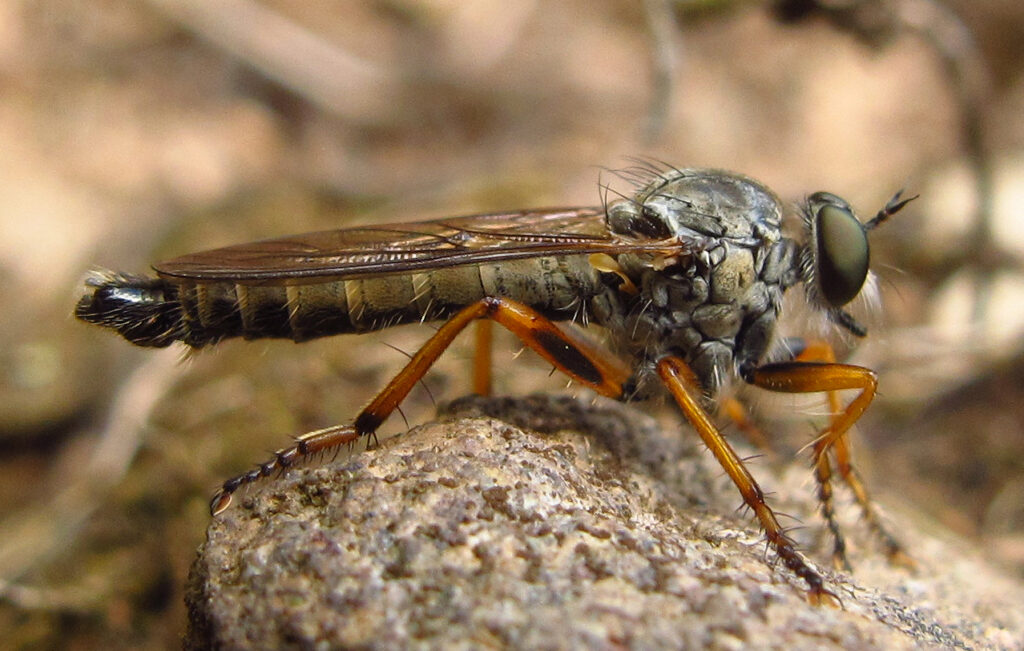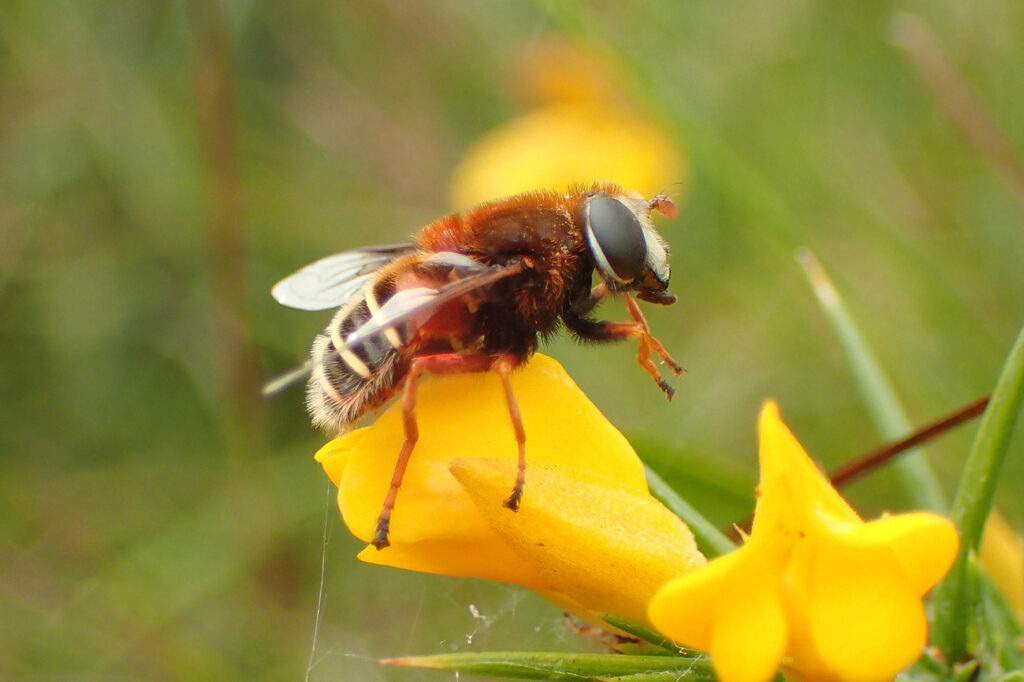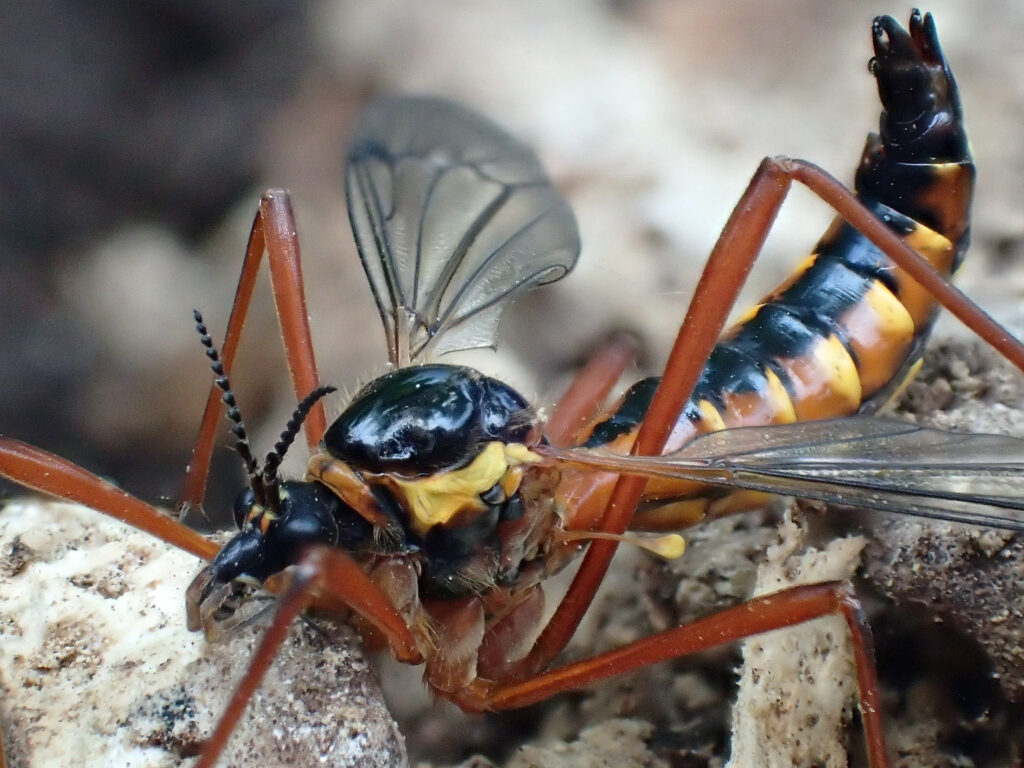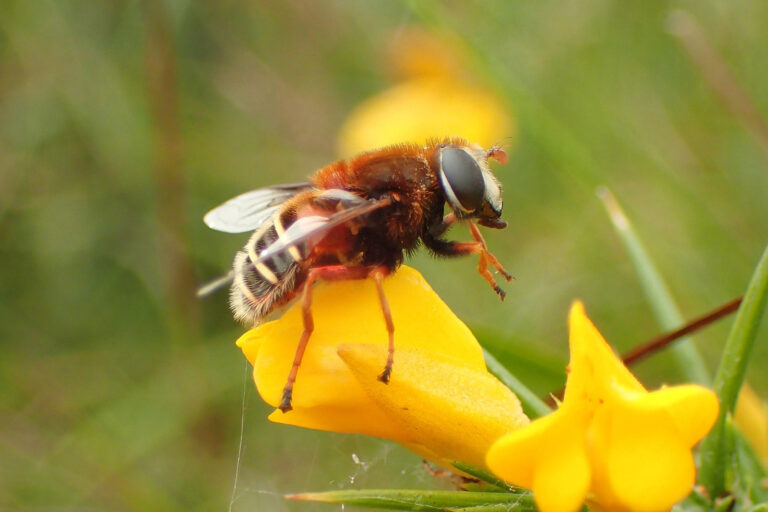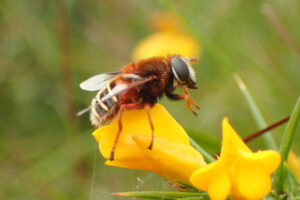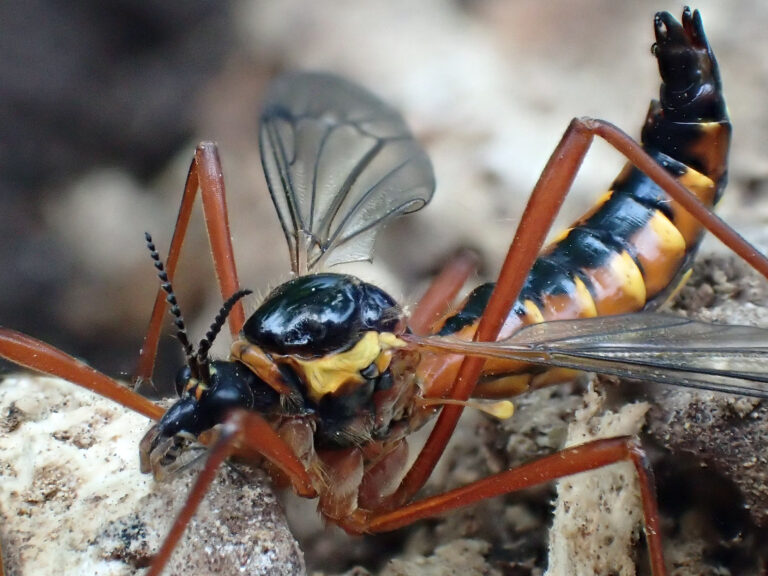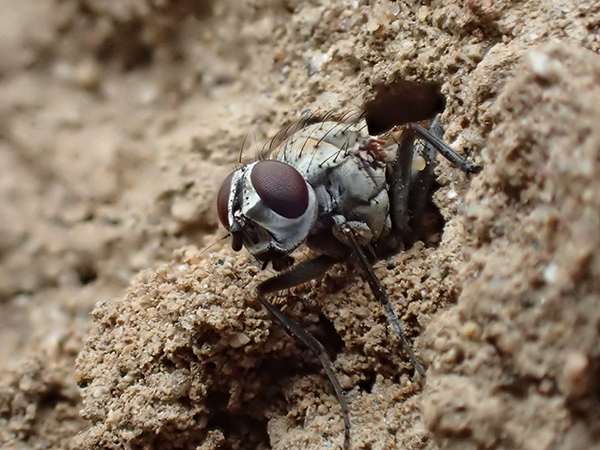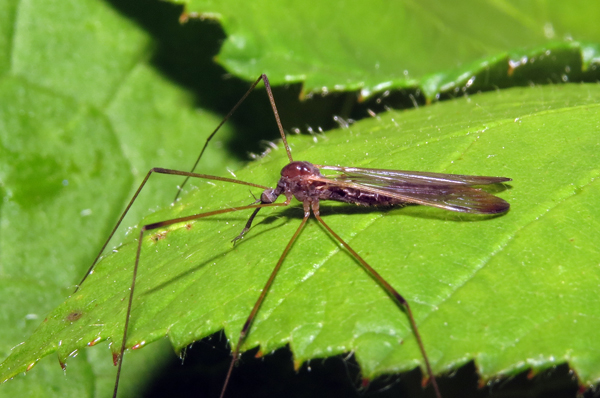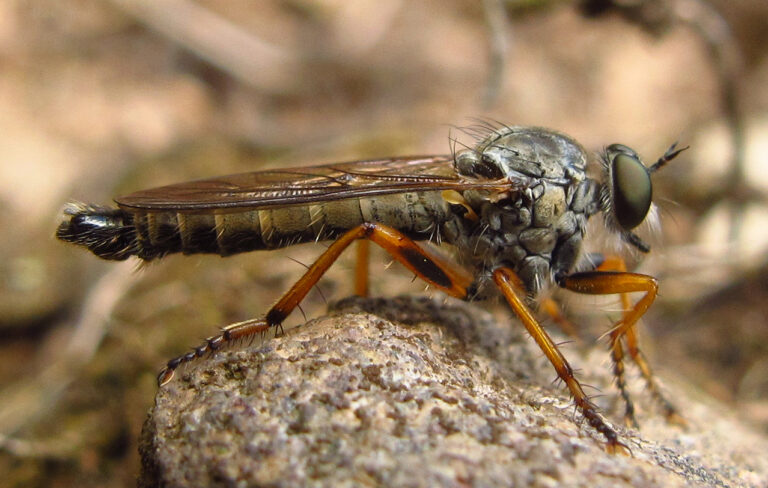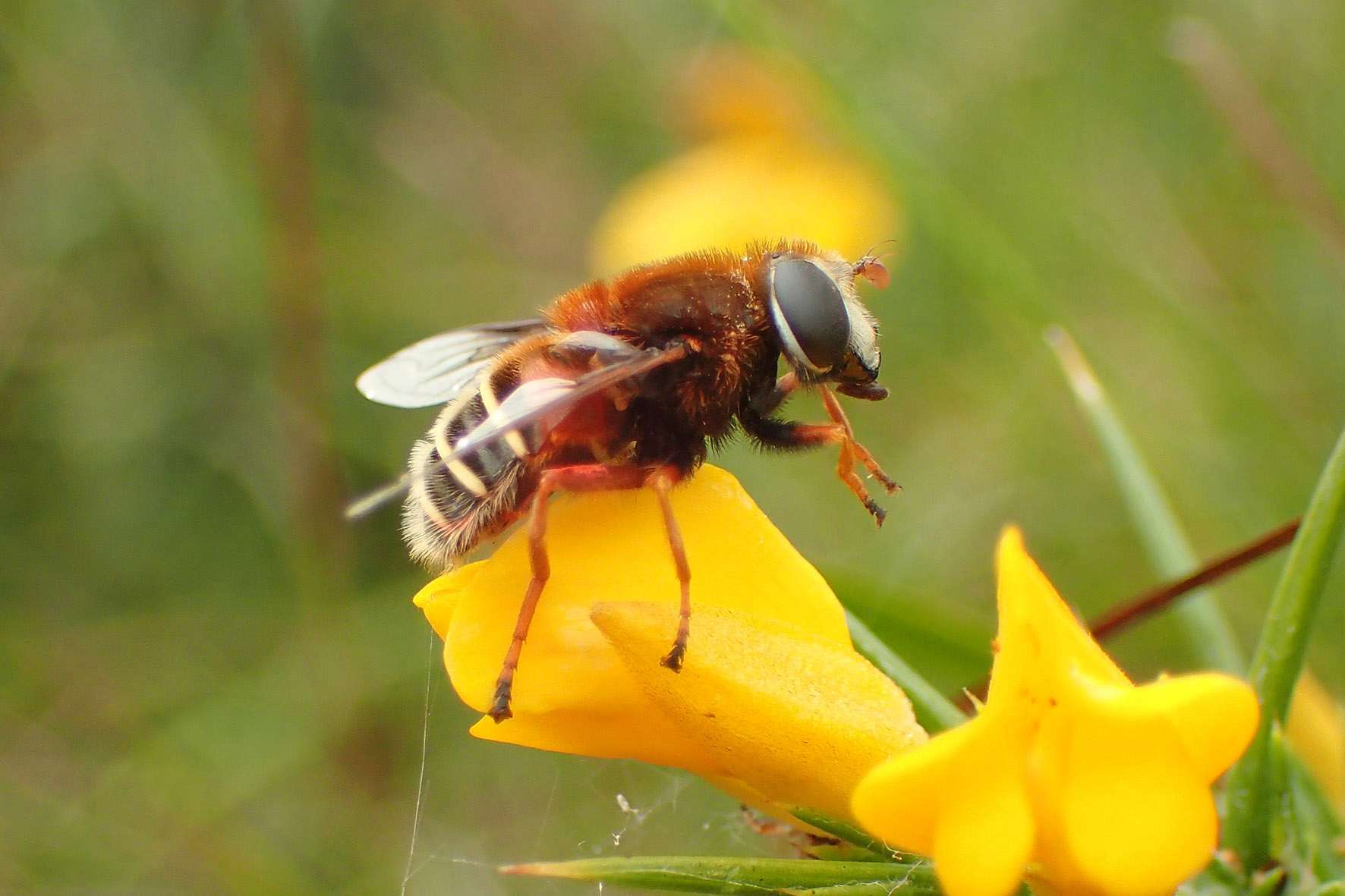True flies are those that belong to the order Diptera and are characterised by having just two wings. In contrast, butterflies, dragonflies, damselflies, caddisflies, stoneflies, mayflies and scorpionflies all have four wings and belong to different insect orders.
Devon is home to a remarkable range of true fly species, reflecting the county’s size and wide range of habitats. Over 3,060 species have been recorded here, 42% of the British total – and tens more are found every year. As not many people are recording flies, it’s likely that many hundreds of species are yet to be found or identified in Devon.
Flies matter! They carry out essential roles and so are a vital part of our natural system. They’re a critical source of food for a wide range of species such as frogs, fish, spiders, bats, birds and even some plants. They’re pollinators and decomposers. And the larvae (maggots) of some species live in soil where they help improve soil heath by aerating it and breaking down plant material.
True flies are found in all habitats across Devon, from gardens to saltmarshes and the wetlands of Dartmoor. Different species have adapted to live in different habitats and they all have different microhabitat needs. However, there are a few critical things that most flies need to survive.
Flowers, sap and fruit: Many adult flies need a source of sugar from nectar, fruit or sap.
Decaying matter: Larvae generally feed on decaying matter such as dead wood, manure or animal carcasses. Many species lay their eggs on decaying matter so their larvae have an immediate source of food.
Water: Lots of flies like a moist environment and depend on habitats such as wet woodlands, mires and watercourses.
Shelter: Like most wildlife, flies need sheltered areas where they’re protected from predators and harsh weather.
There’s no systematic national monitoring of flies. However, it’s thought that many species have significantly declined in abundance and distribution, in line with national trends for insects.
The small but thriving Devon Fly Group carries out surveys and has contributed to the LNRS. They’ve listed xxx species as Devon Species of Conservation Concern. x x species or groups of species are identified as needing specific action or attention and identified as Focus Species.

